Our 3 Locations
The Science Behind Dental Sealants

Dental sealants are one of the best ways to protect your teeth from tooth decay and maintain oral health. This revolutionary preventive treatment, especially useful for children and teens, is gaining popularity among dental practices globally. Peak Dental Care provides dental sealants in Flagstaff, Cottonwood, and Sedona, AZ. We’ll explain how they work and why they are vital in the quest for healthier teeth. We want every patient to understand the science and benefits of dental sealants while offering insights for individuals and families keen on safeguarding their smiles.
What Are Dental Sealants?
Dental sealants are thin, plastic-like coatings that can be easily applied to the chewing surfaces of molars and premolars. The deep pits and grooves in molars and premolars, often called fissures, are the prime spots for food particles and bacteria to settle. Over time, this trapped debris can lead to tooth decay.
Sealants act as a barrier, covering these vulnerable areas to prevent bacteria and food buildup. Once applied, they harden to form a smooth surface that’s far easier to clean. Essentially, they serve as an invisible shield protecting teeth from cavities.
How Do Dental Sealants Work?
The mechanism of action behind dental sealants is simple and effective. This seamless process usually takes only a few minutes per tooth and is entirely painless. Dental sealants are an excellent option for patients of all ages.
These clever, transparent coatings are applied to your molars, forming a smooth and resilient barrier. They work by transforming the complex landscapes of your back teeth, where harmful bacteria love to hide, into sleek, flat surfaces that are far less inviting. Once applied, dental sealants create a clean, protective shield that significantly reduces the risk of tooth decay and cavities, ensuring your teeth remain healthy and strong.
What Are Dental Sealants Comprised Of?
Dental sealants are primarily made from a specialized dental resin, a durable plastic material designed for direct adherence to the enamel. This resin is both safe and robust, crafted to withstand the rigors of chewing. Alternatively, some sealants are formulated with glass ionomer, a compound that includes fluoride to naturally fortify the tooth’s enamel over time. The material chosen for dental sealants is meticulously selected to ensure its durability and longevity, withstanding years of use.
Benefits of Dental Sealants
The advantages of dental sealants are vast, spanning from enhanced cavity prevention to long-term cost savings in dental care. While dental sealants are often out of sight and mind, they’re always doing their job of protecting teeth. Some of the many dental sealant benefits include:
- Cavity Prevention: Dental sealants are incredibly effective at preventing cavities, particularly in molars. Research shows that sealants can reduce the risk of decay in treated teeth by up to 80% within the first two years of application. This protective quality is invaluable, especially for children, who are more prone to cavities during their growing years.
- Non-Invasive and Painless: The application process for sealants is quick and comfortable. It doesn’t involve drilling, anesthesia, or any discomfort, making it an especially attractive option for young patients or those with dental anxiety.
- Cost-Effective: Sealants are far more affordable than fillings, crowns, or root canals for preventing cavities. Sealants also save time and money in the long run by avoiding extensive dental procedures.
- Long-Lasting Protection: Dental sealants are incredibly durable, often lasting up to ten years with proper care. We advise attending regular dental check-ups to ensure they remain intact and effective.
- Promotes Better Oral Hygiene: Sealants create a smoother surface on the chewing areas of teeth, making it easier to brush and remove plaque buildup. This added simplicity encourages better oral hygiene habits, particularly for kids.
Factors Affecting Sealant Durability
Sealants can last a decade with proper maintenance. Some of the factors that can affect sealant durability include:
- Material Quality: The type of material used, such as resin-based compounds or glass ionomer, impacts how well the sealant can withstand wear and tear over time.
- Application Technique: Proper preparation of the tooth surface and careful application of the sealant are crucial to ensuring a strong bond and long-lasting protection.
- Oral Hygiene: Consistent and effective oral care practices, including brushing and flossing, help preserve the sealant and prevent damage.
- Dietary Habits: Frequent consumption of hard or sticky foods can cause wear or dislodgment of sealants, impacting their effectiveness.
- Occlusal Stress: Excessive grinding or clenching of teeth can place undue pressure on sealants, potentially leading to cracking or premature failure.
- Follow-Up Care: Regular dental check-ups allow professionals to monitor the condition of the sealants and address any issues early to prolong their lifespan.
Who Should Consider Sealants?
Sealants are most commonly recommended for children and teenagers as soon as their permanent molars and premolars erupt, typically around ages six to 14. These years are particularly cavity-prone, and sealants provide an additional layer of protection during this critical period. While less common, we can also apply sealants to primary teeth with deep grooves if they are at risk of decay. Preserving baby teeth is crucial since they act as placeholders for permanent teeth. Dental sealants can also benefit adults without cavities or fillings on their molars. For adult patients with deep grooves in their teeth or a history of tooth decay, sealants can be a cost-effective preventive measure.
The Process of Applying Dental Sealants
The procedure for applying sealants is easy and quickly effective. The process of applying dental sealants includes the following:
- Cleaning and Drying: The dentist cleans the tooth thoroughly to remove any plaque or debris.
- Etching: A special gel is applied to roughen the surface slightly and help secure the sealant bond.
- Rinsing and Drying: We rinse away the etching gel and dry the tooth again.
- Application: The sealant material is painted onto the tooth’s surface.
- Curing: A blue curing light hardens the sealant, ensuring it adheres firmly.
How to Care for Teeth with Sealants
While sealants provide robust protection, taking care of them is crucial to maximize their lifespan. Some of the easiest to help maintain teeth with sealants include:
- Brush Twice Daily: Use fluoride toothpaste to remove plaque and strengthen surrounding enamel.
- Floss Regularly: Floss and clean between your teeth to prevent plaque buildup.
- Avoid Biting Hard Objects: Chewing on ice, pens, or other hard objects can prematurely wear down sealants.
- Routine Check-Ups: It’s important to visit our dental office every six months to monitor the health of the sealants and reapply if necessary.
Addressing Common Questions and Misconceptions
Our dental team is always ready to answer questions about dental sealants. Below, we list some of the most frequently asked questions about dental sealants. Reach out to us if you have further questions.
What Does Dental Sealant Do for Teeth?
Dental sealants seal the deep grooves in molars and premolars, creating a protective barrier against bacteria and food particles that cause cavities.
Are Dental Sealants Safe?
Yes, dental sealants are entirely safe. The materials used are medical-grade and non-toxic, and adverse reactions are extremely rare.
Do Sealants Last Forever?
No, dental sealants typically last between five to 10 years. Regular dental check-ups can ensure their effectiveness and help determine when reapplication is needed.
Do Sealants Replace Brushing and Flossing?
Sealants are a supplemental protection measure and do not replace regular brushing, flossing, or other oral hygiene practices.
Sealants in Preventive Dentistry
Dental sealants are a vital part of modern preventive dentistry. Alongside methods like fluoride treatments, regular dental cleanings, and dietary adjustments, sealants play a crucial role in protecting teeth from decay. For parents, investing in sealants for their children can significantly reduce the chances of cavities during their formative years. Adults can also benefit from sealants, particularly if they have cavity-prone or deep-grooved molars.
Contact Peak Family Dental Care
Peak Family Dental Care helps your family optimize their oral health. Dental sealants are a proven, effective, and non-invasive way to protect teeth against cavities. They are particularly beneficial for children and teenagers but can also be a valuable preventive tool for adults. Easy to apply, durable, and cost-effective, sealants help maintain healthy smiles and prevent the need for more extensive dental treatments in the future.
Dental sealants are an investment in prevention that will typically save patients time, discomfort, and costs down the road. Make the move toward healthier teeth. Schedule your dental appointment today to explore whether dental sealants are the right choice for your family.
